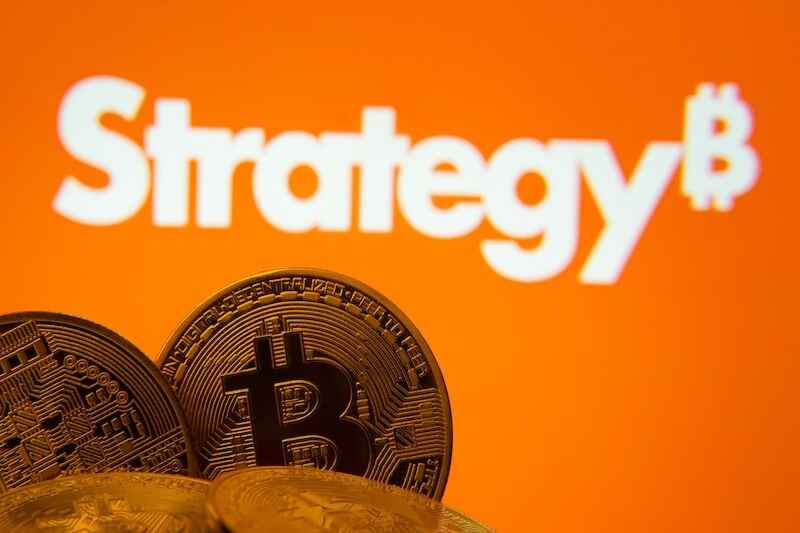This Revolutionary Sector Offers Transparency, Security… and Profits!
Robert Ross|April 30, 2024

We live in a “low trust” society.
Whether divided by political or economic lines, not many folks trust each other these days.
And with an election coming up later this year, I expect this to get worse… specifically when talking about election security.
But imagine a world where every transaction, every record, and even your vote in an election is transparent yet securely protected from tampering.
Actually, you don’t have to imagine. This is the potential offered by blockchain technology now.
Beyond its roots in cryptocurrency, blockchain holds the key to vast improvements in areas like supply chain management, banking, healthcare, and democratic voting processes. It promises a future where efficiency and trust go hand in hand.
And investing in this future can make you a lot of money.
How Blockchain Works
The first time I heard about blockchain technology was in 2016.
I was driving to Lake Tahoe for a concert with my friend Luis, who was an engineer at IBM. He had been working in the company’s blockchain department.
Luis explained that blockchain was like a notebook that many people can write in simultaneously. Once something is written in this notebook, it can’t be erased or changed. Everything written in it is very secure and trustworthy.
Everyone who uses this notebook has a copy, so if someone tries to cheat or make a change, everyone else can see it and stop it.
The most widely known application of this technology is of course Bitcoin. The original crypto utilizes blockchain to record all transactions without the need for a central authority. That makes it transparent and resistant to fraud.
Luis’ enthusiasm was infectious. He described how blockchain could revolutionize not just currencies but entire industries by ensuring data integrity, security and transparency.
And eight years – and thousands of percentage gains later – this prediction is coming true.
The Death of the Middleman
Bitcoin isn’t the only crypto project using blockchain to make a central authority for transactions obsolete.
Ethereum, for one, extends this concept beyond simple transactions. It enables entire decentralized applications (dApps) to run on its platform.
These dApps can execute complex financial agreements, known as smart contracts, without an agent in the middle. I’m not just talking about financial transactions. Any agreement that can be codified – from insurance premiums to intellectual property rights – can be managed autonomously.
Ethereum’s network thus reduces the need for lawyers, brokers, and other middlemen. It has fundamentally reshaped how we engage with many services. It is making processes more transparent and efficient.

Platforms like Chainlink are revolutionizing how external data interacts with blockchains through decentralized “oracle” networks.
These networks allow smart contracts on Ethereum and other blockchains to securely interact with external data sources, payment systems and other off-chain resources. Contracts can then process based on real-world information without needing a central authority.
That’s key for many financial services, such as adjusting insurance prices or settling trades based on current market conditions.

Another noteworthy project is Filecoin, which decentralizes data storage. It allows users to rent out spare disk space on their computers. Filecoin creates a marketplace for data storage and retrieval managed through blockchain technology.
It cuts out centralized cloud storage providers like AWS or Google Cloud. Costs are reduced… and the system is more resistant to downtime or information loss. Security is stronger since data is encrypted and distributed across a global network. Unauthorized access is much more difficult.

These three platforms show how blockchain technology is paving the way for a more decentralized and intermediary-free future across many sectors.
The True Value in Cryptocurrency
Many people new to crypto assume it’s simply a new way to gamble.
And while that is the case with certain cryptocurrencies, there are many projects just like Ethereum, ChainLink and Filecoin that are solving real-world problems.
There’s even a project I’m recommending to readers of Manward Money Report that is slated to change how the multitrillion-dollar global supply chain works. (Not a subscriber? You should be! See how the next 18 months could be HUGE for the entire crypto sector – and how to play it – right here.)
It’s essential to look beyond the speculative frenzy that often surrounds the crypto space. Blockchain technology is not just about creating an alternative to traditional currencies or a playground for high-risk traders. It represents a paradigm shift in how we can handle all forms of transactions and data management.
And the tokens that enable these platforms to function (and rise in value the more they’re used) can make investors a lot of money.
As we continue to navigate a world where technological advancements shape our economic landscape, blockchain stands out as a critical, trust-enhancing tool.
And I intend to keep profiting off it.



